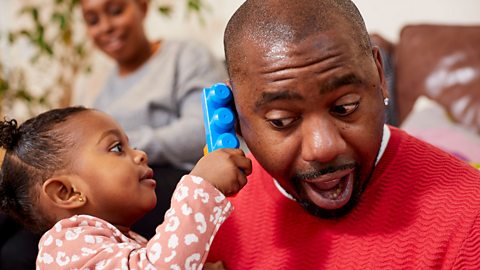As they grow, your little oneâs sleep habits change a lot. Just when you think youâve cracked it, they start waking up every two hours or refuse to sleep at all.
And the older they get, the more their bedtime routine changes⊠and thatâs before you factor in things like school holidays or new siblings.

So whether youâre juggling multiple bedtimes or dealing with teething or colic, you are not alone in feeling stressed at bedtime.
No matter what your routine looks like, here are some things you can try to bring a bit more calm to this time of the dayâŠ
1. Create a relaxed space
âFeeling relaxed is important in the run-up to bedtime for both you and your child,â explains Vicki Dawson from The Sleep Charity. âChildren quickly pick up on the stress levels of those around them so it is important to try to keep calm as bedtime approaches.â
Creating a calm environment in the hour before bedtime is great for everyone in your house. Playing relaxing music in the bedroom, like a classical music station, or some calming bedtime sounds from CBeebies is one way to wind down.
Classical music can be very soothing and makes perfect background music in the evening.
Try darkening the room too. âDimming the lights or closing the curtains helps the body to produce melatonin, which is the sleep hormone that helps us feel drowsy.â
2. Positive touch
Touch is a really important sense for your child at bedtime. It promotes the flow of oxytocin, sometimes know as "the cuddle hormone", which can make both you and baby feel sleepy and relaxed.
In the hour before bed, you could try some gentle tickling, snuggling up with a book, or just some good old-fashioned cuddles. If your child enjoys going in the bath then adding this into your routine can help them feel close to you.
If you have a younger baby, you could try adding baby massage into your routine. âIt made my son much more relaxed when he went to sleep,â says Laura, mum of two, who learned baby massage at a local Sure Start centre. âIt also helped him settle and recognise that it was bedtime.â
You can find more information and tips on baby massage on .

3. Make a bedtime box
One fun way to make bedtime a little calmer is to put together a box filled with activities that will help your child wind down. âPut in things that your child finds interesting and calming,â Vicki says. âThese could be activities like jigsaws, colouring or playdough.â
For children under 12 months, you could put a teddy bear in the box for a quick game of whoâs holding teddy?
Activities which focus on your little one's motor skills, like building blocks or a ribbon pull toy, are another great way to focus their mind and calm them down.
4. Ease separation anxiety
Between the ages of 6 to 12 months, babies can become extremely clingy when theyâre out of your sight or away from you. Sometimes, this feeling of separation anxiety can continue at night time as your little ones get older.
One way you can ease this anxiety is by creating a family wall next to where they sleep. Stick up photos of you and other close family members to help your baby feel safe and relaxed when they go to sleep and when they wake up.
Showing your baby a family photo album or scrapbook before bed can also help them feel relaxed. Point at each family member in turn and say goodnight to everyone. This will help soothe your little one before they go to sleep.

5. Sleepy time games
Introducing your bedtime routine during pretend play can help your little one develop an understanding of this time of day.
Why not try putting teddy to bed together? Copy their routine with their favourite teddy and repeat phrases like âsleepyâ and âgoodnightâ. This will help them link bedtime words with their actions and gain a better understanding of their meaning.
Youâll be able to use and repeat these words at bedtime to help them express how theyâre feeling and wind down.
6. Reflect on your day
Finding time in your routine to reflect on your day can help create a sense of calm. Try listing three good things that have happened, or ask your little one to talk about one emotion they felt today.
Mum, Alex says that reflective time with her little ones is a really important part of their day:
We have downtime after getting into our PJs, where we tell each other about our favourite moments from our day. It doesnât always work but itâs very cute.
Vicki says: âIf your child is anxious about going to bed then try and make time to talk about their feelings during the day. If however, they want to talk through worries at bedtime, it might be helpful to draw their worries and post them into a worry box. You can then look at them the next day and talk about them together.â
Further help
Check out for information and support on family sleep issues and the for healthy sleep tips for children.
If youâre worried about your childâs sleep, please speak to your health visitor or a GP.






